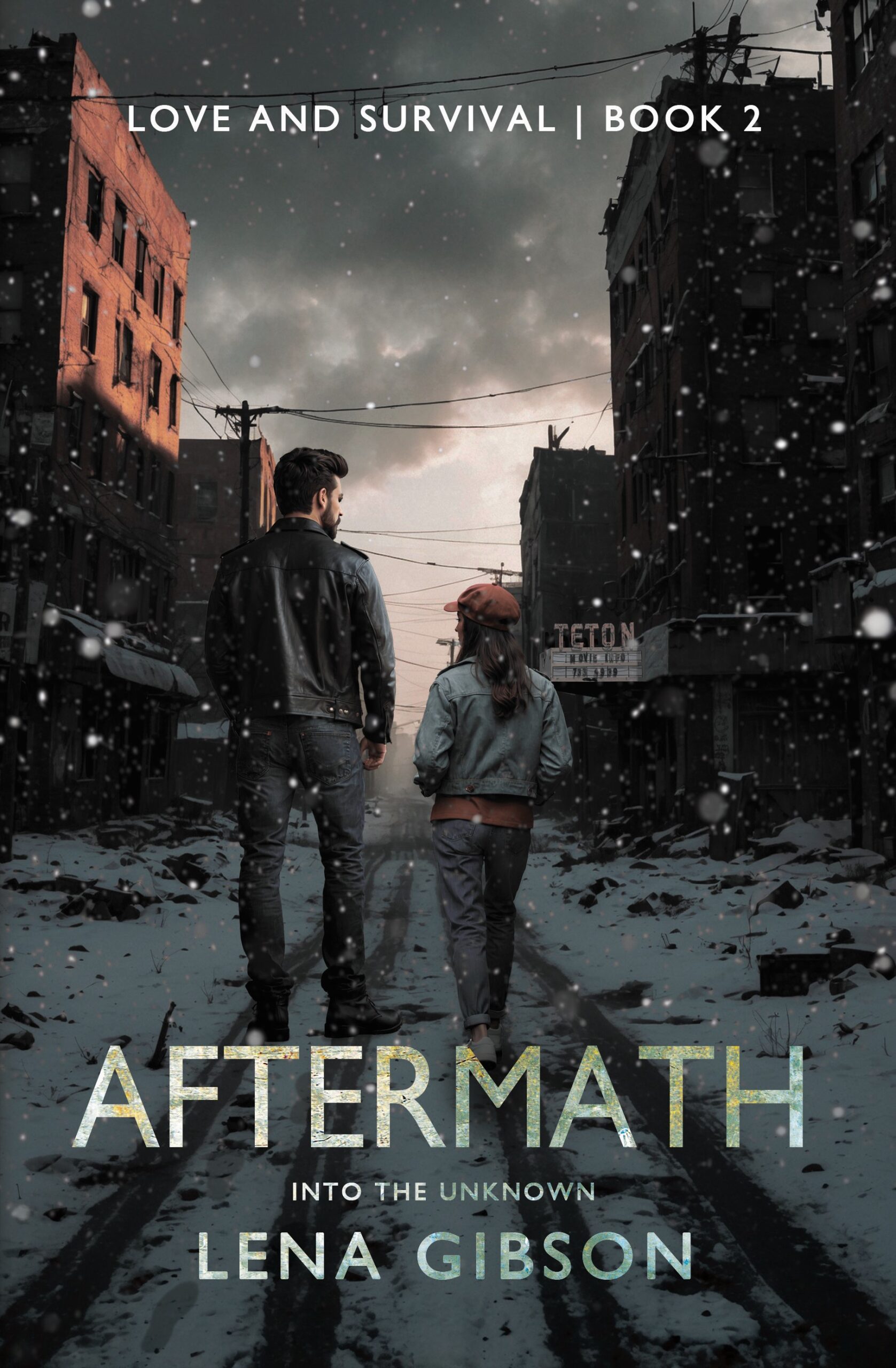
Publisher:
Black Rose Writing
Publication Date:
12/19/2024
Copyright Date:
N/A
ISBN:
9781685135294
Binding:
Paperback
U.S. SRP:
23.95
AFTERMATH
By Lena Gibson


- Posted by IR Staff
- |
Since an asteroid devastated the planet three years ago, Robin has lived with her grandfather in a secret hideout beneath a derelict shopping mall, scavenging for their survival among Boise’s looted stores and eking out sustenance by tending an abandoned vegetable plot. Now a biker gang called The Wings has set up camp inside the mall, threatening their safety. After Robin is surprised by two of the bikers, she fears the worst. But Kory, who towers over the rest of his gang, may not be as mean as he looks. Even Robin’s grandfather identifies something good hidden behind Kory’s fearsome appearance. When Kory protects her from a harrowing attempted rape by killing one of his gang members, the unlikely couple find themselves on the run, heading out on a terrifying road trip across the country to the possibly mythical sanctuary of the VitaXTerra bunker in South Dakota.
AFTERMATH is the second book in Lena Gibson’s Love and Survival series. Though a peripheral character from the first novel is integral to the plot, it can be read as a standalone story. This is a world reeling from the aftermath of the asteroid strike—a post-apocalyptic planet in which the survivors struggle to get by in a lawless world where the infrastructure has been destroyed. It’s dog-eat-dog; success comes down to a combination of luck and bravery in the face of random violence and the vagaries of a dreadfully compromised climate.
In Robin and Kory, Gibson has created two very different characters who gradually build trust and understanding. As much as theirs is a road trip full of peril and excitement, it is also very much an emotional journey. Readers will be just as gripped by the rollercoaster ride of this strange romance as by the well-rendered action sequences.
Gibson is an excellent writer, adept at evoking the strange paranoia of the survivors: “Robin became ghost-like, deciding she would flit into and out of places unseen. If someone spotted her, she’d be gone before they chased her—a figment of their imagination.” Her lead characters are richly constructed with detailed pasts. For example, Robin’s previous life of hopeful education is shrugged off: “so much for a lifetime of straight As. In the end, they hadn’t mattered. She should be bitter, but there was no point. Everyone had lost everything normal.” And Kory, the tearaway with his struggles on the streets of Seattle—homeless, on drugs—she could live with that, too: “Once, that kind of history would have scared her, but nobody was the same as they’d been in the old days.”
The idea of the “old days,” the world before the asteroid, is skillfully handled. Gibson uses echoes of what once had been taken for granted and what now seem unimportant; luxury goods, career ambitions, the trivialities of life have been overtaken by the need for bare essentials and the solace found in companionship and family. As with many dystopian novels, Gibson’s stories work as exacting allegories of contemporary societal obsessions. Interesting to see, though, that people are still hankering to listen to Taylor Swift even after the apocalypse.
Lena Gibson’s ongoing Train Hoppers series demonstrated that she is adept at conjuring gripping and entirely believable narratives set in the aftermath of disaster, where society has gone beyond the brink of chaos. AFTERMATH further shows that she is one of the current masters of the dystopian YA novel, able to create thrilling drama while also building empathetic characters who will live long in the memories of her readers.
~Kent Lane for IndieReader

Publisher:
Black Rose Writing
Publication Date:
12/19/2024
Copyright Date:
N/A
ISBN:
9781685135294
Binding:
Paperback
U.S. SRP:
23.95

- Posted by IR Staff
- |
Three years after an asteroid hits the West coast – and demolishes 95 percent of California – life continues. Lena Gibson’s AFTERMATH: Into the Unknown zeroes in on Robin Wilson and her ‘savior,’ Kory, who escape from Idaho’s motorcycle gang and then fall into the Slains’ cult. Their second escape’s a charm. Weighted more to the romance genre than science fiction, the second book in Gibson’s the Love and Survival series captivates with its gripping dialogue and real-to-life characters.

AFTERMATH
Lena Gibson
Black Rose Writing
9781685135294
Rated 4.5 / 5 based on 1 review.